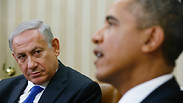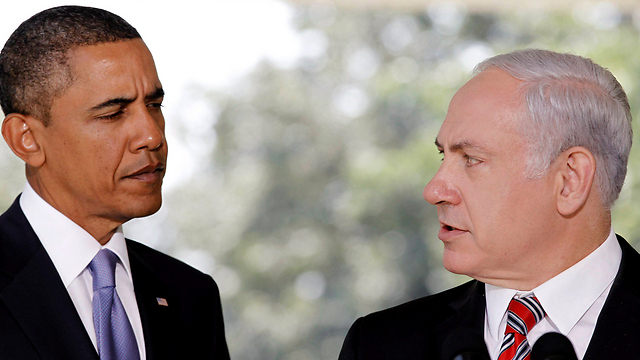
Israel allegedly spied on closed-door negotiations world powers were holding with Iran on its nuclear program, the Wall Street Journal reported Monday, quoting White House officials.
According to the report, Prime Minister Benjamin Netanyahu's government also gathered information from confidential US briefings, informants and diplomatic contacts in Europe.
The Journal reports that the Obama administration was less concerned with the fact Israel spied on the talks and more concerned by Israel leaking this confidential information to American lawmakers and others in order to build a case against the deal being negotiated.
"It is one thing for the US and Israel to spy on each other. It is another thing for Israel to steal US secrets and play them back to US legislators to undermine US diplomacy," the Journal quoted a senior US official as saying.
Tensions between Netanyahu and Obama have been high over the prime minister's recent address to Congress earlier this month in which he slammed the deal being negotiated.
Netanyahu was invited by Republican House Speaker John Boehner, an invitation that was not coordinated with the White House.
Boehner's invitation has caused consternation in Israel and the United States, with detractors saying Netanyahu, a hawk on Iran, is working with the Republicans to demonstrate their opposition to President Barack Obama's Iran policy.
Israel's espionage operation was uncovered when US intelligence agencies spying on Israel intercepted communications between Israeli officials containing information the Americans believed could only have come from access to the confidential talks, the Journal reported.
Israel, on its part, denied spying directly on the American delegation, saying the information was obtained through other means - namely surveillances of Iranian leaders and information received from European officials directly, particularly from the French.
"These allegations are utterly false. The state of Israel does not conduct espionage against the United States or Israel’s other allies. The false allegations are clearly intended to undermine the strong ties between the United States and Israel and the security and intelligence relationship we share," a senior PMO official told the Journal.
Outgoing Foreign Minister Avigdor Lieberman dismissed the report.
"This report is not true. Obviously Israel has security interests to defend and we have our own intelligence. But we do not spy on the United States. There are enough participants in these negotiations, including Iranians," he said. "We got our intelligence from other sources, not from the United States. The instruction has been clear for decades now: you don't spy on the United States, directly or indirectly."
The Journal reported Israel's Ambassador to the US, Ron Dermer, briefed US lawmakers and their aides on secret information from the talks - including how the deal could allow Iran to operate about 6,500 centrifuges and would permit Tehran to deploy advanced IR-4 centrifuges that could process nuclear material on a larger scale, according to congressional officials who participated in the briefings.
But Israel's Washington Embassy denied the report, with spokesman Aaron Sagui telling the Journal: "Ambassador Dermer never shared confidential intelligence information with members of Congress. His briefings did not include specific details from the negotiations, including the length of the agreement or the number of centrifuges Iran would be able to keep."
Current and former US officials said the information was misleading and did not include the concessions Iran was asked to make.
A New York Times report last month cited Israeli officials saying the United States had limited what it was sharing with them about the talks and a European official saying he had been warned by Washington to be careful what he shared for fear of it being selectively leaked.
Following the report in the Times, the White House slammed Israel for "a continued practice of cherry-picking specific pieces of information and using them out of context to distort the negotiating position of the United States."
"There's no question that some of the things that the Israelis have said in characterizing our negotiating position have not been accurate," White House spokesman Josh Earnest said at the time.
Reuters contributed to this report.
















